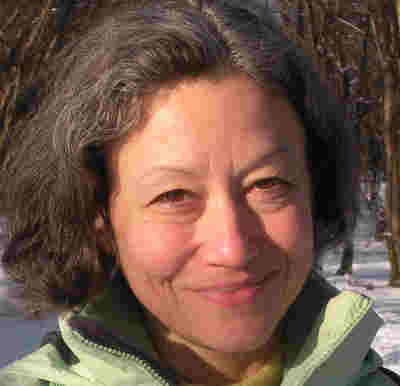I met author Valentina Bold in Washington,
DC while attending the Library of Congress’ conference on Robert Burns
during January of 2009. She was on the program with such notables as
Alex Salmond, current First Minister of Scotland; Robert Crawford, poet,
writer and professor at University of St Andrews; and Dr. Ted Cowan,
author and Director of the University of Glasgow Dumfries Campus where
he is also Professor of Scottish History and Literature. Dr. Bold is
also associated with the University of Glasgow at Dumfries where she is
head of Scottish Studies. She walks among the giants of Scotland
academia and is as much at home doing so as any of them! She is used to
walking in and among big shoes as her late father was poet and critic
Alan Bold, one of my modern Scottish heroes.

Dr. Bold is editor of the 2009 edition of
The Merry Muses of Caledonia. Any serious student of
Burns will see to it that a copy of this book is placed in their
personal library for ready reference. Why is this edition so important?
Bold’s insightful 70-page introduction makes it so. She brings a modern
approach to the works of Burns and others and basically completes the
1959 edition of James Barke (who, unfortunately, died before the book
was published) and J. DeLancey Ferguson. You will find footnotes
regarding emails, recorded telephone conversations, and interviews by
the author. This is a fresh look at what has been pushed under the bed
and out of sight – Burns’s erotica!
In this writer’s opinion, Burns never meant
for The Merry Muses to be published. The songs were for
private use of Burns and his friends, particularly those composing the
membership of Edinburgh’s Crochallan Fencibles, among others. Remember,
they were written and collected for what they are - songs, not poetry.
They are to be sung, not recited. Burns never gave permission for these
songs to be printed, but after his death the book appeared on the scene
bringing much controversy with it. Some labeled it unacceptable in
proper company, and others vowed it was just outright dirty, lewd and
distasteful. It is actually a collection of bawdy songs which, as Bold
points out, were always meant to be accompanied by music and, I might
add, privately among friends. So, in reality, those who published
The Merry Muses after Burns’ passing did us a favor for we can
now see a complete Burns, warts and all, and judge him for the poet and
song writer who turned the world on its ear.
If I looked for a comparison in today’s
world of song writing, I would have to look at Jimmy Buffet. Here is a
man who has written some of the most sensitive songs I’ve ever heard
with titles like “He Went to Paris”, “The Captain and the Kid”, “Come
Monday” and “Miss You So Badly”. Yet, he could write a song that may
offend some entitled “Why Don’t We Get Drunk and Screw”! Buffett was
once asked by a reporter how he could write such really sensitive songs
and then write that real trash. “Well”, replied Buffet, “I can be very
sensitive on occasion and very trashy on others”. His answer may not
please some Burns worshippers but it says enough for me, and I doubt
Burns would disagree.
When you look at the entire situation,
Burns’ life as a whole, I agree with Valentina Bold when she says “the
songs become titillating rather than obscene, designed to elicit a
chuckle (or, perhaps, a belly laugh)”. After all, who can help but
chuckle when the great singer Jean Redpath says she is going to sing
“Nine Inches Will Please a Lady”! Dr. Bold goes on to say, “This is not
Burns as he might have wished to be remembered or, in all cases, at his
most polished”. But it is Burns and we cannot leave out this part of him
and only take his other songs and poems if we are to have a complete
Burns or Burns as he knew himself to be.
Valentina Bold is also a lady of wit. Just a
few days ago in the Herald Scotland, Ken Smith in “Stranger
Danger” quotes her about being at a folk festival where a well-known
singer was performing a session of bawdy songs in which heavily featured
Burns. Says Valentina, “At the end, a couple of very nice, respectable,
elderly ladies got up to leave looking rather disgruntled. When the
singer asked if there was a problem, they said, ‘We thought it was going
to be bothy songs’.”
This edition updates the 1959 edition by
Barke and Ferguson with foreword and commentary by Sidney Goodsir Smith.
The introduction by Valentina Bold is very refreshing. A surprise awaits
you near the end of the book as the last chapter is entitled “Songs by
Burns, with Music” by Valentina Bold.
The author states simply, “I seek to
compliment the work of Barke, Smith, and Ferguson.” There is no doubt
she achieves her purpose! Dr. Valentina Bold is to be congratulated for
her scholarship, and she concludes her introduction by saying that “The
Merry Muses of Caledonia richly deserves to be treated as a serious
book even if it is still, in many ways, highly elusive”.
The wrap-around note sheet on the cover of
the book sums it all up: “Valentina Bold introduces a new version of the
definitive 1959 text – the first edition to acknowledge the biographical
value of Burns’s bawdry and treat it as serious academic study. The
collection as now published is as close to the original as scholarship
is likely to achieve, barring the rediscovery of Burns’s own notebook.”
You may purchase a copy of The Merry
Muses of Caledonia at
www.luath.co.uk. The
good folks at Luath Press will direct in completing your order. (FRS:
6.24.10)
